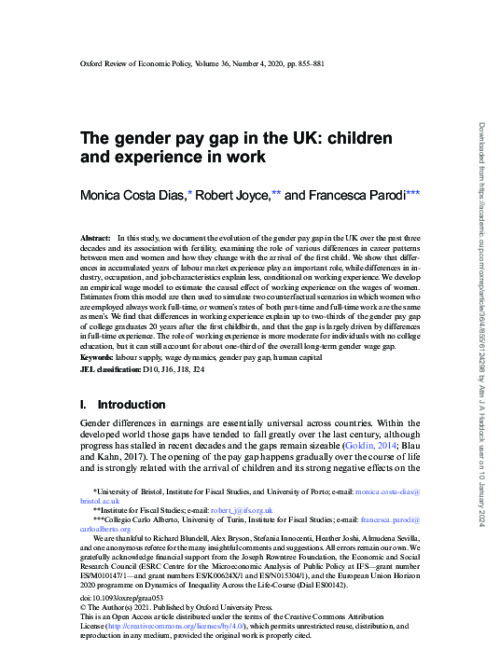In this study, we document the evolution of the gender pay gap in the UK over the past three decades and its association with fertility, examining the role of various differences in career patterns between men and women and how they change with the arrival of the first child. We show that differences in accumulated years of labour market experience play an important role, while differences in industry, occupation, and job characteristics explain less, conditional on working experience. We develop an empirical wage model to estimate the causal effect of working experience on the wages of women. Estimates from this model are then used to simulate two counterfactual scenarios in which women who are employed always work full-time, or women’s rates of both part-time and full-time work are the same as men’s. We find that differences in working experience explain up to two-thirds of the gender pay gap of college graduates 20 years after the first childbirth, and that the gap is largely driven by differences in full-time experience. The role of working experience is more moderate for individuals with no college education, but it can still account for about one-third of the overall long-term gender wage gap.











